Why Herbal Medicine?
Once upon a time, a human watched a bear… Legend has it, native peoples learned the green ways from the bear. They’d watch what plants and root and fungi the bears consumed, and that way they knew it was safe to consume for themselves. If the bear suffered a belly ache, and grazed in a mint patch, they knew that was the medicine to use for such an ailment. Our connection to natural things was stronger then than it is now, because we were one with what was around us. We still have connection to this mother earth, and the plants still influence and hold the key to our health. While grandmother bear is still the healer, modern life has created a wedge between people and natural ways. Luckily, knowledge has been passed down generations and there are many who have it in their blood and who still feel the calling.
Herbal medicine may be known as an alternative today, but it is the original medicine. It was the way to heal since the beginning of time. Modern allopathic medicine as we know today has only been around for one hundred years or so. Maneuvers by big pharma and corporate interests influencing politics over the past so many decades has skewed what we know medicine to be. That’s not a hit on modern medicine, as allopathic medicine has its place, but it is not the only way to find healing and wellness. For instance, I don’t have a cure for cataracts, but modern medicine can fix the problem in twenty minutes. I can however help prevent the cataract in the first place. There is a place for both in our society.
Where we see most value is in treating the person, not only the symptoms. In allopathic medicine, you treat the ailment by trying to “kill” the bacteria with an antibiotic, but as a result you have destroyed your microbiome, affecting your digestion and ability to uptake nutrients, along with a laundry list of other possible side effects such as ulcers, indigestion, or allergic reactions to name a few. On the flip side, in herbalism, you could have used herbs to strengthen your body and boost your immune system. In taking this route, you allow your body to do what it’s made to do, guided by the spirit of the plant. It really is a shame most doctors and herbalists can’t work together better.
Herbs are generally much more gentle with little to no side effects if used correctly, and can support the body in more ways than simple “attacking” or “killing” something. The same herb that might aid quality of sleep can also act as an adaptogen to help your body better adapt to stress or as a sedative to help you sleep better. Other herbs can provide nutrition, while also working to cleanse and tonify the liver. Furthermore, it gets even more interesting, because you can combine two or more herbs in ways where they work together in a synergistic manner accomplishing deeper levels of healing.
So is herbal medicine right for you? Do you have an ailment, discomfort, or complaint that’s bothering you? Are you feeling sluggish? Foggy? Is your vitality waning? Do stressful moments wear on you and stick with you for awhile? Do seasonal allergies get the better of you? Does your weight fluctuate drastically? Do you feel down at times? Does something just feel off?…
Everybody can benefit from medicinal plants, because before our medicine was in pills or vials, or IVs, it was the food we ate. In the natural world we evolved from and in, there’s little difference. Food isn’t simply to taste good, it is to support life. Instead of grabbing a brightly colored package of processed empty crap, grab that bright whole vegetable or fruit, or dark green leaf. It’s easy to add herbs to one’s diet, even if it’s as simple as adding rosemary, thyme, garlic, or a medicinal mushroom powder to your meals. As Henry David Thoreau put it, “A man may esteem himself happy when that which is his food is also his medicine.” As much as we’d love to stalk a giant grizzly bear through the wilderness to learn its healing ways, luckily those before have already achieved this feat, and books can be found for further information for those who feel the pull in their blood.

